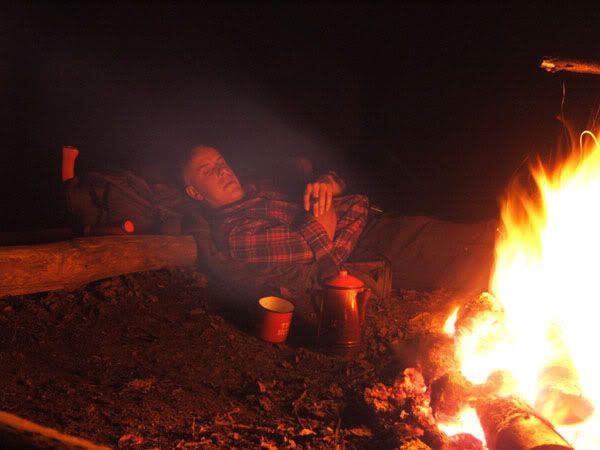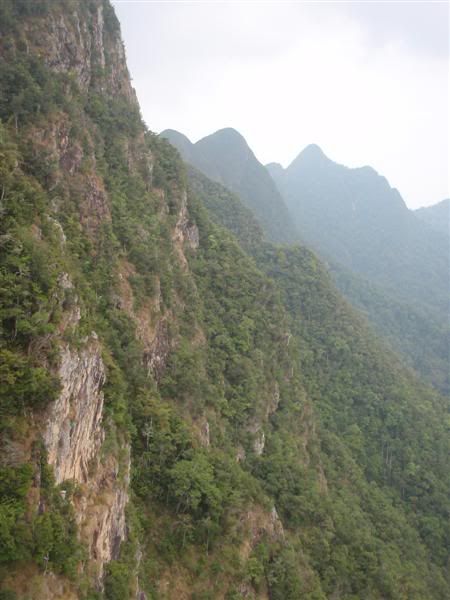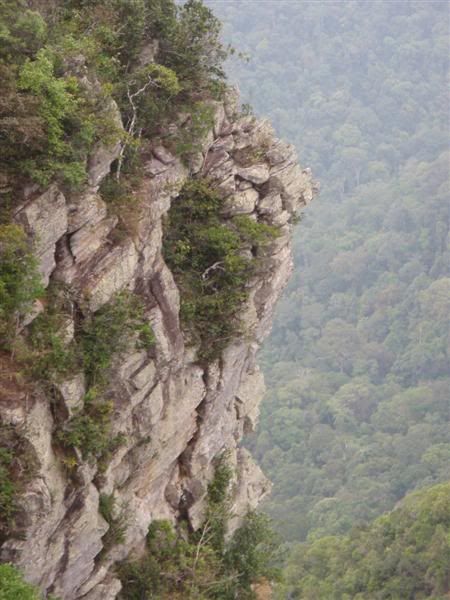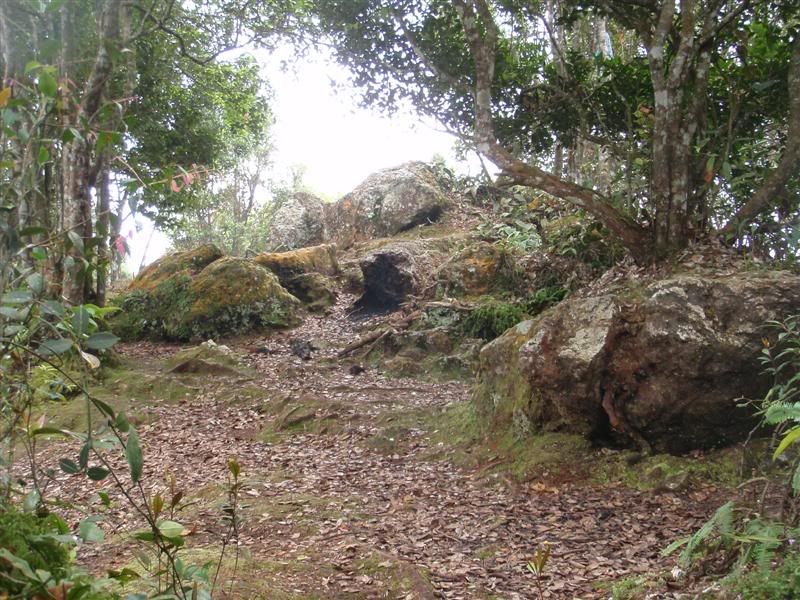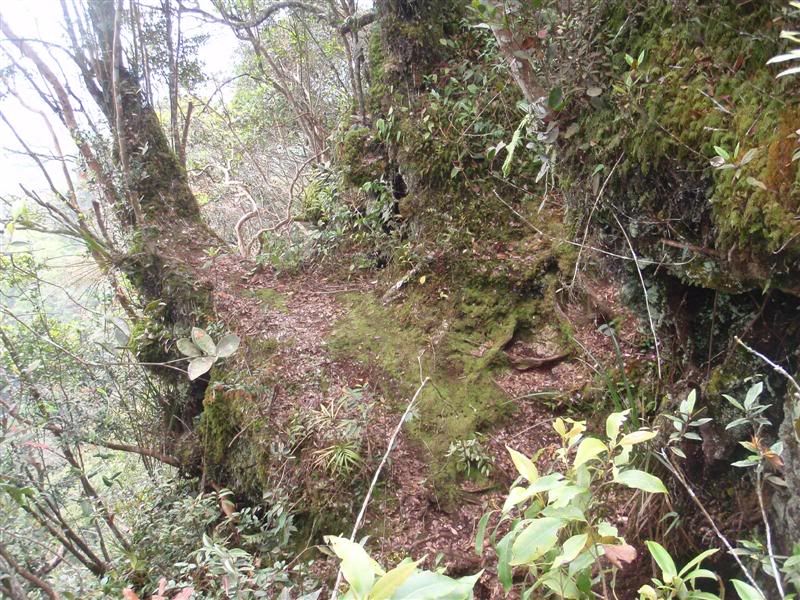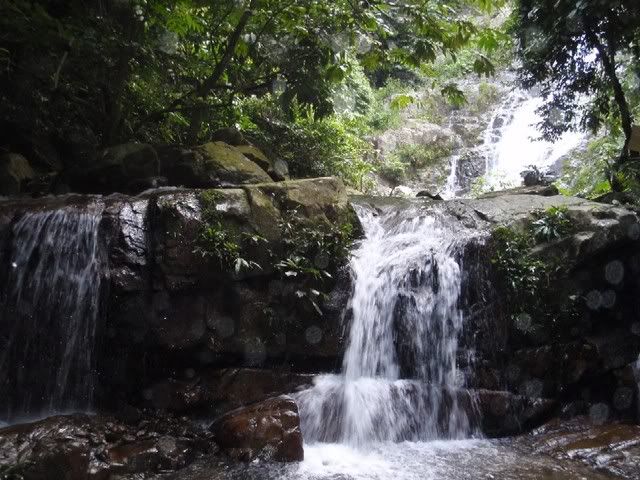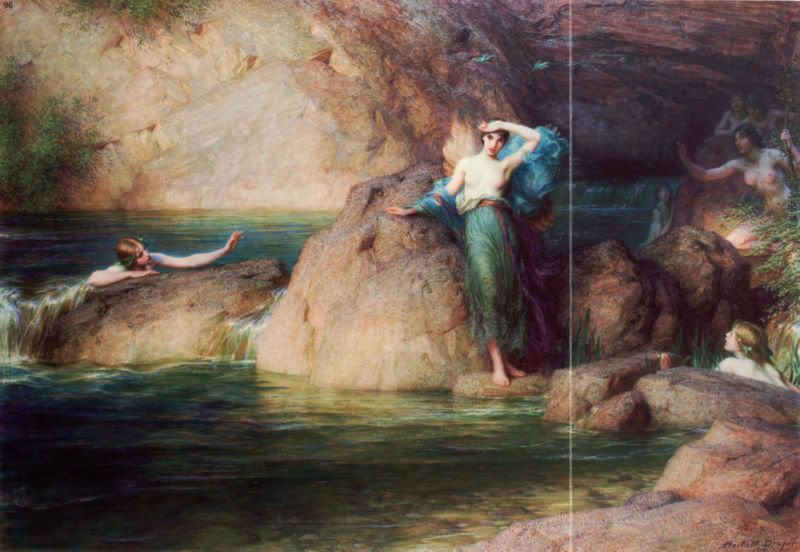Lets face it, I (and probably 99% of people on this forum) will never in our lifetime have the need to resort to practising many of the skills espoused on this site "in anger". We put ourselves in artificial situations of survival (primitivism, luddite living, scouting activities [my romantic apogee] and getting back to nature) and reach for the warmth emanating from the well thumbed pages of time in order to satisfy the individualistic yearnings within each of us.
Well, I can't speak for the rest of us, but for me one can divide it roughtly into three categories:
1. Skills I use "in anger".
2. Craftmanship
3. Historical reenactment (romanticism if you want)
Lets look at the first item. When out travelling in the bush -- and while it might not technically be a physical need, it most certainly is a need for my mental well-being -- I have the choice of being dependant on my gear, on nothing ever breaking down or getting lost, or on my skills. If I can light a fire even when all my matches are soaked I am a safer wilderness traveller, if I can read tracks or know where to find sphagnum moss I am a better field biologist, if I can find my way by looking at the trees I can travel with less fuss and bother, if I know the uses of plants I am a better biology teacher, etc, etc.
And sometimes the old style gear is obectively
better then the modern stuff. In the dry cold of the arctic a pair of moosehide mukluks will keep your feet warm better than a plastic and foam boot, an egyptian cotton anorak will outperform a Gore-Tex jacket. And I save thousands by heating my home with firewood rather than electricity, and, even in the land of hydroelectric power, it probably lowers my CO_2 footprint.
The craftmanship and historical reneactment items are closely coupled. There is no reason for Robin to turn a bowl; Tescos can sell him ones in both steel and plastic, for such a low price that any simple-minded comparison would label the woodturner insane. Yet there are people who are more than willing to pay the extra price, or to take the extra time, to have something that is made with craftmanship and hundreds of years of history behind the "how it was made". In a world where it is easy to have the same spoon, cup, shirt or knife as everyone else, it is a luxuary to have one that is unique to you, that you know that while there may be others
similar to it, there is not one more that is
exactly the same. Students 10 years younger than the pack has envied my 25 years old leather daypack. Not because it is full of bling, not because it is the latest fashion, but because it is unique, obviously not made in a factory, and full of character (i.e. non-destructive wear marks). And works even today. That is a luxuary that can never be factory made. And that cost me US$30 in 1985 (and a few hours of work).
And the moose stew tastes better than one made from industrially produced pork, just like a piece of beef from grass feed cattle tastes better than a grain fed one (but is harder to produce in 1000 carcass lots). By slow cooking a roast, making a chanterelle risotto and a home made sauce I can eat a meal that would have cost me tens of pounds in a restaurant, for a fraction of the cost. But I
could have fed my familly on ready meals from the freezer section of the supermarket; it would be less nutritious, contain at the least 5-10 ingredients that had no place there, and cost more. And taste like crap, even if you can live of it. It is the same thing; the bushcraft experience is genuine and unique, which is a luxuary in a mass produced world: I can see hundreds of animals by watching nature programs on TV, but I value seeing a single moose cow and her calves cross the field outside my house more. Because they are real!
And the forestry companies and traffic saftey people are -- in some measure -- happy that I killed the moose, since there was less browsing on young trees, and less chance of someone running their car into a moose as a direct result of me pulling that trigger.
In conclusion, by bushcraft and old fashioned skills I get a better life and a level of luxuary that could cost me a lot of money to get, for very little money. Sounds like a pretty simple question, doesn't it?


